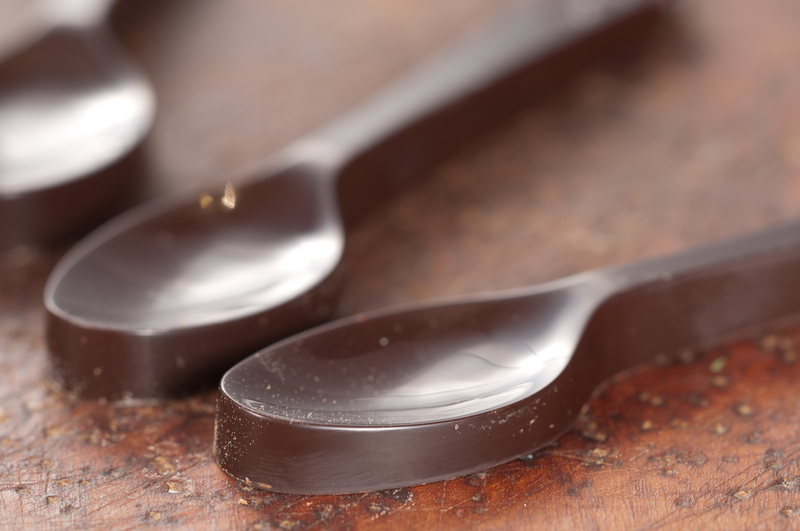Donation and Recycling Options for Your Old Pots and Pans
Are you wondering what to do with a pile of old kitchenware? As kitchen upgrades become more popular, more households are seeking responsible ways to dispose of unwanted pots and pans. Whether your cookware is slightly used or completely worn out, this guide explores eco-friendly donation and recycling solutions for your old pots and pans. Make a positive impact on the environment--and perhaps on someone's life--by discovering the many options for responsible cookware disposal.

Why Responsible Disposal Matters
Every year, tons of non-biodegradable kitchenware end up in landfills. Items like pots, pans, and other cookware are typically composed of metals such as aluminum, stainless steel, or cast iron, with some having nonstick coatings. These materials do not break down easily and may cause environmental harm if not disposed of properly. By choosing to donate or recycle old cookware, you minimize waste and promote resource conservation.
Environmental Benefits
- Reduced landfill waste: Recycling or donating your cookware keeps bulky metal out of landfills.
- Conserves natural resources: Repurposing old materials reduces the need for mining and processing virgin metals.
- Lowers carbon footprint: Recycling uses less energy than manufacturing new products from raw materials.
Community Impact
- Provides affordable cookware: Donated pots and pans can help families and individuals in need.
- Supports charity programs: Many nonprofit organizations rely on donations of household goods to fund services and projects.
Donation Options for Old Pots and Pans
If your old pots and pans still have some life left in them, donating is an excellent option. Numerous charities and thrift stores accept gently used cookware and redistribute them to those in need.
Where to Donate Used Cookware
- Local Charities and Thrift Stores: Organizations such as Goodwill, Salvation Army, and Habitat for Humanity ReStores frequently accept donations of usable pots and pans.
- Shelters and Transitional Housing: Homeless shelters, women's shelters, and transitional housing programs often welcome kitchenware donations for their residents.
- Community Centers: Some local community centers run kitchens or classes and are grateful for donated cookware.
- Churches and Religious Organizations: These organizations sometimes run meal programs or help set up homes for families in need.
How to Donate Kitchenware Responsibly
Before donating, consider these guidelines:
- Clean Thoroughly: Wash and scrub your pots and pans to remove food residue, grease, and stains.
- Check for Functionality: Ensure handles are secure and that items are usable and safe. Severely damaged or warped cookware may not be accepted.
- Call Ahead: Contact your chosen organization to confirm acceptance. Some locations may have restrictions due to nonstick coatings or condition requirements.
- Donate Accessories: If you have lids that match, be sure to donate them together.
Creative Direct Donation Options
- Online Freecycle Networks: Post your available cookware on Freecycle, Craigslist "Free" sections, or local Facebook groups to connect directly with someone who needs them.
- Student Housing: College dorms and campus housing can often use extra cookware for community kitchens.
- Refugee or Immigrant Support Groups: Organizations supporting newcomers may welcome practical household donations, including pots and pans.
Recycling Options for Old Pots and Pans
If your cookware is no longer usable--deeply scratched, warped, or missing parts--recycling is the best choice. Cookware is usually made from recyclable metals but may require some preparation for proper recycling.
How to Recycle Old Pots and Pans
- Check Your Local Recycling Program
- Consult your city or county's recycling guidelines to see if they accept cookware.
- Some curbside programs accept metal pots and pans, especially if they are all-metal.
- Some programs do not accept Teflon or nonstick-coated pans.
- Take to a Scrap Metal Yard
- Most scrap metal facilities accept old cookware, whether it's aluminum, stainless steel, or cast iron.
- Separate any non-metal parts, such as plastic handles or glass lids, as some yards only accept pure metal.
- Specialty Recycling Centers
- Certain recycling centers specialize in hard-to-recycle household items, including cookware with coatings or lost handles.
- Use sites like Earth911.com to search for local recycling options by zip code.
Preparing Cookware for Recycling
- Remove Non-Metal Parts: Unscrew handles or knobs made of wood, plastic, or rubber.
- Sort by Metal Type: Separate stainless steel, cast iron, and aluminum cookware for better recycling rates (if required).
- Clean Thoroughly: Quickly scrub off food residue or burnt bits.
- Check With Recycler: Some recyclers restrict Teflon or non-stick pans, while others may accept them if you remove the coating first.
Can Nonstick Pans Be Recycled?
The answer depends on the facilities in your area. Nonstick pans (such as Teflon-coated) are trickier to recycle because their coatings can't be processed with scrap metal. In some cases, you can:
- Contact the manufacturer: Some brands run "take-back" programs where you ship in old pans to be recycled safely.
- Use hazardous waste programs: Rarely, municipal hazardous waste drop-offs accept nonstick pans.
- Check with scrap yards: Some will accept them if you scrape or sand off the coating.
Tip: "Green" nonstick pans made with ceramic coatings are sometimes accepted as regular scrap metal.
Alternative Uses for Damaged Pots and Pans
If you love a DIY challenge, consider upcycling your old cookware into decorative or functional new objects. This approach is especially useful for pans too damaged to donate, but not ready for the landfill.
Creative Upcycling Ideas
- Planters: Turn deep pots or aluminum pans into quirky garden containers for herbs and flowers.
- Wall clocks: Upcycle a frying pan into a kitchen-themed wall clock for a fun conversation piece.
- Birdbaths or Feeders: Use shallow pans for garden wildlife accessories.
- Organizers: Use old pans as organizers for tools, screws, art supplies, or small kitchen items.
- Craft Projects: Paint or decorate pans for use as serving trays or unique pieces of art.
Tips for Safe Upcycling
- Avoid food uses: Don't use pans for serving food again if their surfaces are pitted, rusted, or nonstick coatings are flaking.
- Use protective gear: Wear gloves and goggles if cutting or sanding metal.
- Seal sharp edges: Cover any jagged or sharp areas with paint, glue, or protective wrap.
Sustainable Shopping: Choosing Pots and Pans You Can Recycle
To minimize future cookware waste, consider sustainability when purchasing new pots and pans:
- Buy Fully Metal Cookware: All-metal cookware is easier to recycle at the end of its life.
- Choose Durable Brands: Invest in quality pieces with replaceable parts for longer use.
- Look for Take-back Programs: Some companies offer incentives or accept old pans for recycling when you purchase new items.
- Avoid Toxic Materials: Opt for pans free from PFAS, PFOA, and other hard-to-recycle coatings.

Frequently Asked Questions (FAQ): Donation and Recycling of Pots and Pans
Can I donate pots and pans with nonstick coating?
Many organizations accept gently used nonstick pans as long as the coating is intact and safe. Severely scratched or flaking nonstick surfaces should be recycled instead.
What if my pots and pans have broken handles?
Most charities will not accept cookware that is damaged or unsafe. Remove non-metal parts and recycle the metal base at a scrap yard.
Where can I recycle cast iron pans?
Cast iron is highly recyclable--take these heavy pans to your nearest scrap metal yard or a specialty recycling center. Cast iron is prized by some recyclers due to its high metal content.
What should I do with glass lids?
Most curbside recycling does not accept tempered glass lids. These should be reused, donated (if in good shape), or taken to a specialty glass recycler.
Are there any pickup services for donating used cookware?
Some charities, like Goodwill, offer pickup for large donation loads. For smaller amounts, online networks such as Freecycle or Nextdoor allow you to arrange local pickups directly with neighbors in need.
Conclusion: Make a Difference With Your Old Pots and Pans
When you replace your kitchenware, don't throw old pots and pans in the trash. Instead, explore donation and recycling options to minimize waste, reduce landfill contributions, and support your community. Donated cookware finds new homes, while recycled pots and pans conserve valuable resources for future generations. Whether you choose to donate, recycle, or upcycle, your thoughtful action makes a difference--both locally and for the planet.
If you found this guide useful, share it with friends and family. Together, we can promote a more sustainable kitchen and a greener planet!